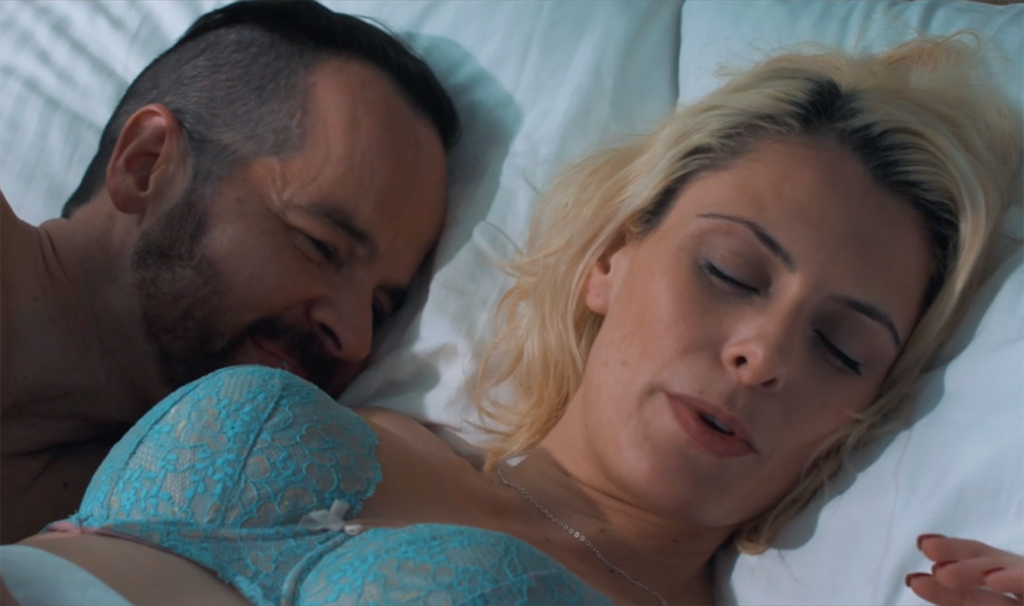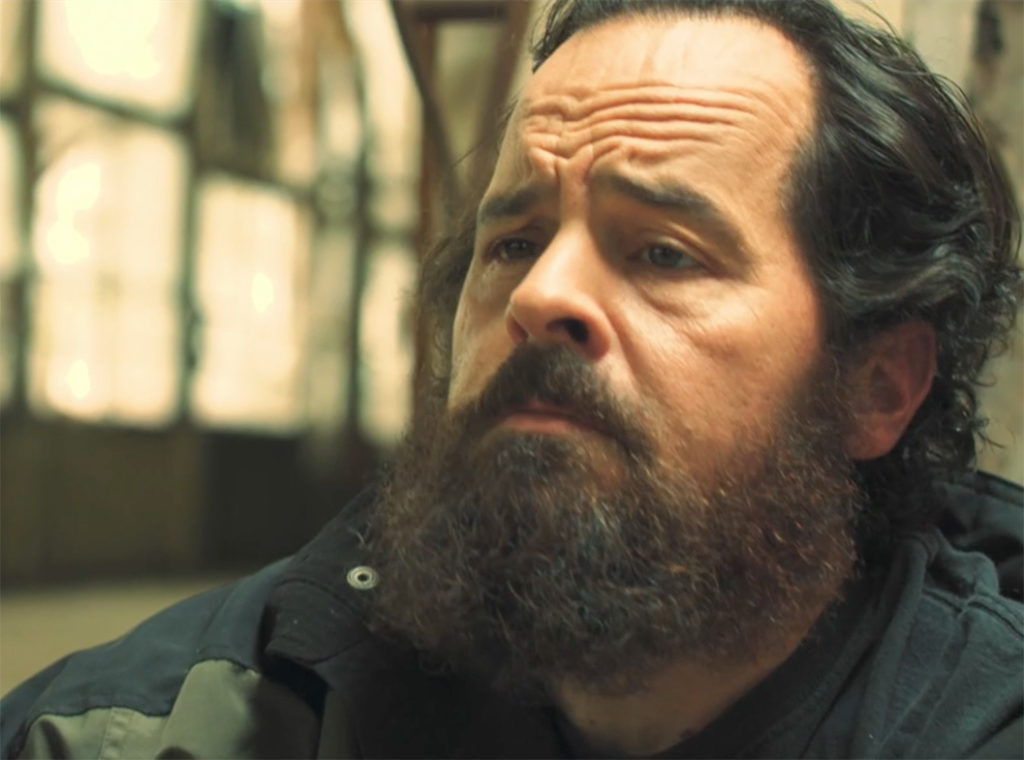“Amaranthine,” an independent short directed by Evan Schneider and written and produced by Marc Powers covers familiar themes—namely life in a post-apocalyptic world—but brings the material to fruition amongst a $5,000 budget. The film, detailing the life of a survivor of an unnamed end-times event, while a slow-burn, is rife with haunting images, rich emotion, and a hopeful pallor, enhanced by both its cinematography and score. That its ending is slightly convoluted is ultimately forgivable. This is an atmospheric film that, among other accomplishments, works to make you feel something.
“Amaranthine” is 21 minutes in length, and Powers and Schneider have stuck the landing with its run-time. The film doesn’t feel too long nor too short, and flows rather nicely. The film’s opening, featuring a tender, brief moment between its protagonist, Caleb (played by Powers) and his wife (Jordan Tofalo), is bright and crisp as the pair wake up in bed, Caleb serenading his wife, detailing happy times. That the film cuts to a lonely, solitary Caleb walking alone amidst a city that seems devoid of life, sporting a heavy beard and a heart to match, sets the tone for things to come. Caleb has “lost” his wife—and while we never learn if she is truly dead, or lost amidst a world we can’t understand, the pain that lines Caleb’s demeanor is palpable, and Powers brings him to life with subtle gestures.
Caleb meets another survivor, a beautiful woman named Shayleigh, played by Jen Drummond. “Amaranthine” is not big on explanations—one of its strengths—and Drummond manages to garner support for her character with subtle, emotive dialogue. “You can call me Shay,” she offers to Caleb. “All my friends called me Shay.” Hanging her phrasing on the word “called” sends a relatable shiver down your spine. Dozens of post-apocalyptic movies with much bigger run-times and budgets have utilized flashbacks to show the lives lost in such events. But here, a simple word harkens more pain and loss than a million such scenes.
It helps that Drummond is a fantastic actress: a scene where she relays her past to Caleb around a campfire later that night is introspective and kind, and the things great indie cinema is made of. Caleb’s ensuing response is equally heartfelt, painful, and pensive: with previously little in the way of dialogue, this one monologue-filled scene showcases the restraint of Powers and Schneider in their writing, as well as the acting ability of both leads. You feel only the characters’ emotion, and never that you are watching people act.

“Amaranthine’s” score adds much to the proceedings, utilizing anxious-inducing sounds for the film’s brief scenes of desperation, but undercutting the rest of the proceedings with light, ambient music during its pleasant flashbacks, and forlorn synthesizers and bass as Caleb walks the streets, alone, company with nothing but his thoughts. It’s obvious that Powers and Schneider utilized inspiration from post-apocalyptic films such as “I Am Legend” in the film’s emotions, but have done something unique by shrouding its lead in mystery and its proceedings dripping with relatable hurt. What’s it like to lose the love of your life and be sentenced to solitude? Would you accept the company of a stranger if she came your way? The answers aren’t forthcoming. Caleb drinks, wanders, and ponders—and we do so alongside him. Sometimes leaving things up in the air has a stronger impact that neat, sewn up scripts that hand everything to us.
If there is one criticism of the film, it’s that a tacked-on scene at the end, showing a second flashback between Caleb and his wife, is confusing and seems unnecessary. The proceeding film stirred emotion through dialogue, atmosphere, and lingering cameras. A different ending that didn’t attempt to explain so much, or explained it more thoroughly, might have had a better effect. But it’s forgivable; the film leaves an impact, and audiences will hopefully look past this for its underlying effect.
At the end of the day, “Amaranthine” is a good film. It’s production, acting, score, and cinematography are solid, and it offers dialogue-inspired emotion that is the hallmark of good indie film. The picture is currently awaiting admission to the festival circuit in 2021, and should you get the chance to watch it is a definite recommend.


